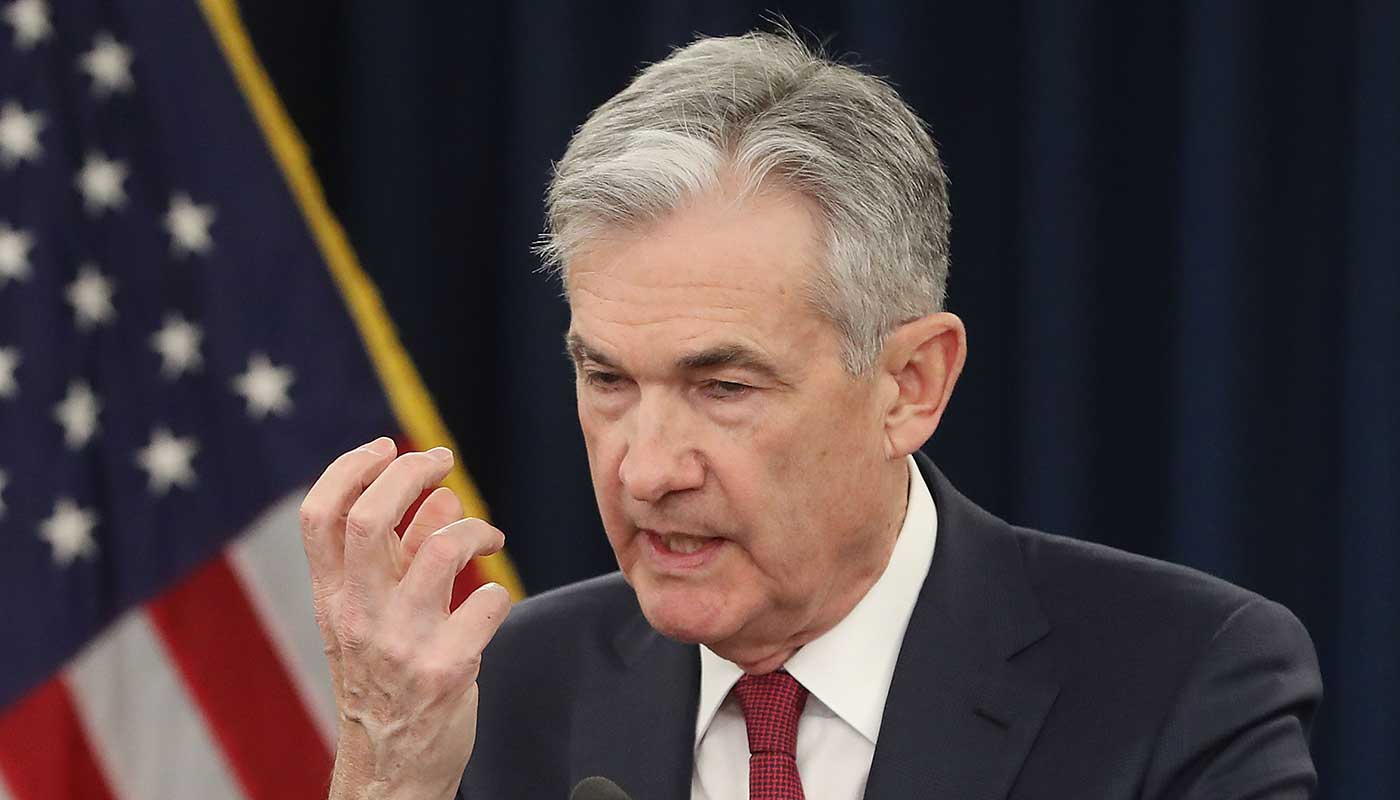Is the US about to cut interest rates?
Fed chairman signals fall in rates after immense pressure from Donald Trump


A free daily email with the biggest news stories of the day – and the best features from TheWeek.com
You are now subscribed
Your newsletter sign-up was successful
Federal Reserve chairman Jerome Powell has strongly hinted that an interest rate cut is iminent, in a testimony before the US House Financial Services Committee yesterday.
Powell cited threats to the US economy’s steady, decade-long expansion - including Trump’s trade wars, slowing global economic performance, chronically muted inflation, and geopolitical instability - in what the markets read as an effort to lay the groundwork for dovish monetary policy manoeuvres, potentially later this month.
Investors ignored the warnings about the global economy, focusing instead on the chance for cheaper borrowing, sending stock prices up, bond yields down, and causing the S&P 500 index to briefly cross 3,000 for the first time. The index has almost quadrupled since its climb began in March 2009.
The Week
Escape your echo chamber. Get the facts behind the news, plus analysis from multiple perspectives.

Sign up for The Week's Free Newsletters
From our morning news briefing to a weekly Good News Newsletter, get the best of The Week delivered directly to your inbox.
From our morning news briefing to a weekly Good News Newsletter, get the best of The Week delivered directly to your inbox.
If the anticipated rate cut goes ahead, it would be the first time the central bank has lowered interest rates for ten years.
Delivering the Fed’s semi-annual report to Congress in the first of two day’s testimony on Capitol Hill, Powell told lawmakers that “it appears that uncertainties around trade tensions and concerns about the strength of the global economy continue to weigh on the US economic outlook”.
“Uncertainties about the outlook have increased in recent months,” Powell said, adding that “a number of government policy issues have yet to be resolved, including trade developments, the federal debt ceiling, and Brexit”.
The New York Times explains: “Falling interest rates lift stocks in two ways. They lower the returns on new investments in bonds, the main alternative to stocks for many investors. That makes stocks look more attractive to investors. A rate cut also makes it cheaper for consumers and companies to borrow, and that can buck up economic activity and help corporate profits.”
A free daily email with the biggest news stories of the day – and the best features from TheWeek.com
The Guardian says the move is likely to please the president, noting that “Powell has been under immense pressure from Donald Trump to cut rates”.
In what the newspaper calls a “series of unprecedented attacks on the independence of the Fed by a sitting president”, Trump wrote on Twitter earlier this month: “Our most difficult problem is not our competitors, it is the Federal Reserve!”
When asked if the chairman had any intention of stepping down if Trump attempted to push him out, Powell was clear: “Of course I would not do that. My answer would be no. The law clearly gives me a four-year term, and I fully intend to serve it.”
Sung Won Sohn, economics professor at Loyola Marymount University in Los Angeles, told the Associated Press: “I think it will be the start of a series of rate cuts. Powell wants to provide fuel for the economy down the road.”
As the Financial Times reports, despite the positive market reaction, the move isn’t without potential pitfalls: “One of the risks for the Fed in cutting rates now is that it could leave it less room to stimulate the economy once a new recession does come sometime in the future. But Mr Powell said he did not expect a ‘severe downturn’ in the US economy and insisted that the Fed’s tools would be ‘adequate’ to tackle any future crisis.”
William Gritten is a London-born, New York-based strategist and writer focusing on politics and international affairs.
-
 How to Get to Heaven from Belfast: a ‘highly entertaining ride’
How to Get to Heaven from Belfast: a ‘highly entertaining ride’The Week Recommends Mystery-comedy from the creator of Derry Girls should be ‘your new binge-watch’
-
 The 8 best TV shows of the 1960s
The 8 best TV shows of the 1960sThe standout shows of this decade take viewers from outer space to the Wild West
-
 Microdramas are booming
Microdramas are boomingUnder the radar Scroll to watch a whole movie
-
 Currencies: Why Trump wants a weak dollar
Currencies: Why Trump wants a weak dollarFeature The dollar has fallen 12% since Trump took office
-
 TikTok: New owners, same risks
TikTok: New owners, same risksFeature What are Larry Ellison’s plans for TikTok US?
-
 Trump wants a weaker dollar, but economists aren’t so sure
Trump wants a weaker dollar, but economists aren’t so sureTalking Points A weaker dollar can make imports more expensive but also boost gold
-
 Leadership: A conspicuous silence from CEOs
Leadership: A conspicuous silence from CEOsFeature CEOs were more vocal during Trump’s first term
-
 The end for central bank independence?
The end for central bank independence?The Explainer Trump’s war on the US Federal Reserve comes at a moment of global weakening in central bank authority
-
 Can Trump make single-family homes affordable by banning big investors?
Can Trump make single-family homes affordable by banning big investors?Talking Points Wall Street takes the blame
-
 Phish food for thought: Ben & Jerry’s political turmoil
Phish food for thought: Ben & Jerry’s political turmoilIn the Spotlight War of words over brand activism threatens to ‘overshadow’ the big ice cream deal
-
 What a rising gold price says about the global economy
What a rising gold price says about the global economyThe Explainer Institutions, central banks and speculators drive record surge amid ‘loss of trust’ in bond markets and US dollar
